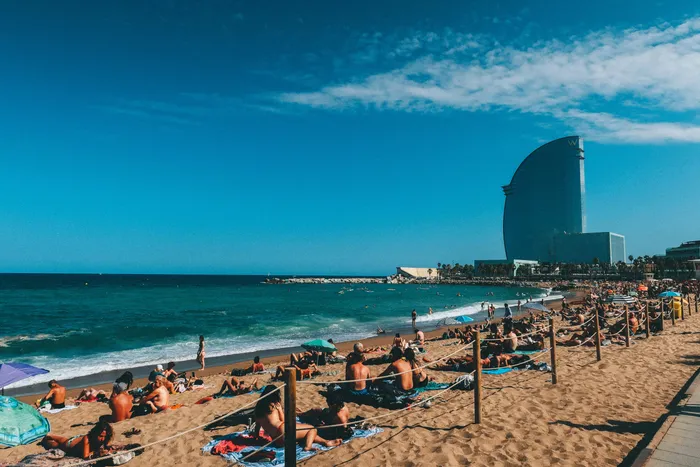Spain's crackdown on Airbnb listings raises red flags for summer tourists
OVER TOURISM

Travellers enjoy a day out a beach in Barcelona, Spain, which is experiencing a housing crisi due to overtourism.
Image: Unsplash
As travellers set their sights on Spain’s sun-soaked and culturally rich cities this summer, they must tread carefully in light of a significant new clampdown on Airbnb lodgings.
Spain’s effort to curb the adverse effects of overtourism has led to a wave of removals, with over 65 000 holiday rental listings ordered for deletion due to violations of local regulations.
The Spanish Consumer Rights Ministry has identified several key issues behind this crackdown: many listings reportedly lack required licence numbers, fail to clarify whether the property owner is an individual or a corporation, and often present discrepancies between the listed information and the official records.
These violations come amid a burgeoning housing affordability crisis that has ignited protests across the nation, particularly in hotspots like Madrid and Barcelona.
As Spain prepares for another busy tourist season, concerns about overtourism have already sparked demonstrations.
In May, thousands took to the streets in the Canary Islands to voice their dissatisfaction with the surge in short-term rentals, which many locals believe are exacerbating housing shortages in their communities.
“Airbnb will continue to appeal against all decisions related to this case. No evidence of rule-breaking by hosts has been put forward,” said an Airbnb spokesperson.
“The root cause of the affordable housing crisis in Spain is a lack of supply to meet the demand. The solution is to build more homes - anything else is a distraction.”
This counters claims that restricting short-term rentals will solve the housing crisis.
Despite the Spanish stand-off between local authorities and Airbnb, the recent legal developments provide some insights.
The Madrid court decision from May 13 is seen not as an outright ruling on the merits of regulation but rather as an interim measure.
Initially, the Ministry proposed the removal of 5 800 listings, but after scrutiny from Airbnb, the number was lowered to 4 984, indicating some compliance within the platform.
Spain faces a staggering backdrop of nearly 4 million vacant homes, comprising over 14% of its total housing stock.
Yet, only 0.5% of these properties are classified as short-term rentals.
Critics of the crackdown question the efficacy of such measures, pointing to cities like New York and Barcelona, where short-term rental restrictions have favoured hotel chains and often worsened housing problems for locals.
Airbnb’s position is clear: the platform aims to work closely with national authorities to develop consistent short-term rental regulations across the European Union.
The company has already launched various initiatives to foster compliance with local laws, promoting transparency and accountability among hosts.
Despite ongoing tensions, Airbnb recently forged partnerships with local authorities in regions such as the Canary Islands and Ibiza to improve the quality of tourist accommodations while benefiting both visitors and residents alike.
These partnerships not only provide clarity for hosts but also aim to enhance the local community's experience of tourism.
As the summer season approaches and the allure of Spain's vibrant culture and sunny beaches draws in visitors, potential travellers need to exercise caution.
With local regulations shifting rapidly, verifying the legitimacy of an Airbnb listing before booking could be the difference between a dream vacation and a major setback.
Related Topics:
